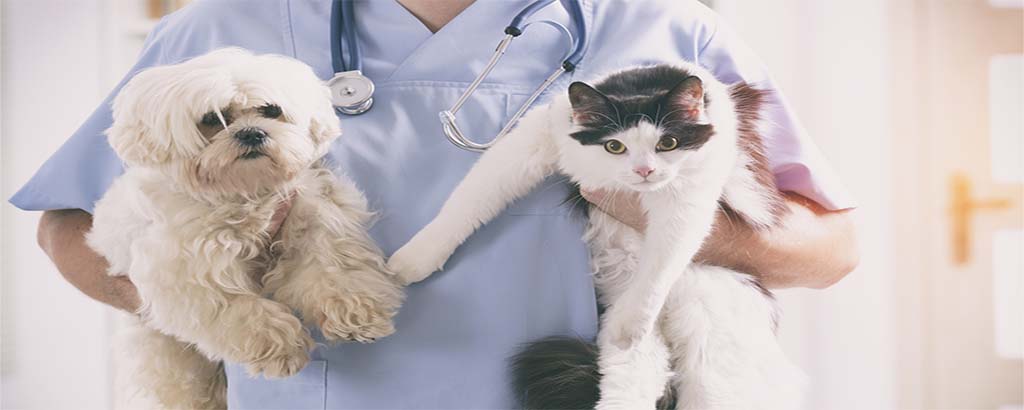Vaccinations are where quality pet health begins but can be a touchy subject in the pet world. There is often disagreement within the ranks. The industry is filled with pet vaccinations and other medications, but what ones are necessary for your pet? At K9 Club we have chosen two trusted veterinary advisors to help create our pet vaccinations and other requirements policy. Each Veterinarian can vary but it’s important that you have a trusting relationship with your Vet to be sure you are choosing what is right for your pet
What Does K9 Club Require for Pet Vaccinations?
K9 Club’s staff has spent a great deal of time researching pet vaccinations and consulting with our Vet advisers. We have come to the decision it’s important for dogs coming to our facility to be vaccinated with rabies, DHPP, leptospirosis, bordetella, canine influenza, have passed a fecal exam, and use a year-round flea & tick preventative. For felines, they must be vaccinated with rabies, feline leukemia, feline viral rhinotracheitis, calicivirus, and panleukopenia. We came to this conclusion because we need to create the safest environment possible. For our pet vaccinations policy, one of the main factors we focused on is that we will house dogs and cats from many different areas. The health and well-being of every pet entrusted to us is our top priority and by following our policies we minimize risks and create a safer environment.
What are Vaccinations?
Pet vaccinations, also known as immunizations, help prevent the spread of diseases by enabling the immune system to create defenses against it. The vaccination has the disease antigens that mildly stimulate the immune system that then creates antibodies to fight off the real disease. Vaccinations are not without risk. Felines and canines can have adverse reactions, commonly minor but can be more serious and require medical attention. That is why it is important to have an open line of communication with your Vet, and to monitor your pet after any vaccination administration.
Factors that Play a Role in Choosing Vaccinations
For pet parents, the world of vaccinations can be scary and confusing. Rabies is required by law so that vaccination is chosen for you, but then there are core and non-core vaccinations. There are a few different factors to be aware of to determine your pets vaccination needs. These factors listed below give you a starting point for a discussion with your Veterinarian.
- Age-Pet’s have different requirements at different ages.
- Geography-Diseases can be more prevalent in different areas. That’s why it’s best to have a trusting relationship with your local Vet to figure out which pet vaccinations are suitable.
- Lifestyle-Is your cat an outdoor cat or indoor? Do you take your dog to dog parks or hiking where there could be feral animals? There are many different factors to think about relating to your specific lifestyle.
Canine Influenza
Canine influenza-H3N2 has rapidly spread throughout Michigan in 2018. It has quickly become a priority to require the vaccination for many boarding facilities in Michigan. Canine influenza is a highly contagious respiratory infection in dogs. There are two forms-mild and severe.
Symptoms can last from 10-30 days which include…
- Dry, hacking cough
- Coughing up foamy phlegm
- Lethargy
- Vomiting
- Lack of appetite
- A runny nose
- Rapid breathing
- Fever
Cats infected with H3N2 canine influenza show signs of upper respiratory illness, such as a runny nose, congestion, malaise, lip smacking, and excessive salivation.
To prevent the spread of canine influenza, Veterinarian recommended disinfectant Rescue Ready, which ingredients include accelerated hydrogen peroxide, has proven efficacy against the virus. At K9 Club we are proud to say that our staff has been trained by representatives of Virox, the makers of Rescue Ready.
On-site, we have two Mason Kennel isolation kennels should a pet begin showing symptoms. Each isolation kennel has its own drainage and air exhaust to prevent contamination.
Fleas & Ticks
Flea infestations can rapidly get out of control. Fleas may be tiny but can jump vertical as high as 8 inches. Females can lay 40 to 50 eggs per day for around 50 days. They can go quite a while without eating. The flea life cycle goes from egg to larva to pupa before the final adult stage. The process can take anywhere from two to three weeks to several months, depending on the conditions. Adult cat and dog fleas can live up to one year in ideal situations, but only about one to two weeks if no host is present.
Ticks attach themselves to your pets and feed on their blood. Their skin, where the tick is attached can become red and irritated. On rare occasions, ticks can consume enough blood to cause a deficiency. Ticks are easily capable of causing diseases, such as Lyme disease in your pets. Pets that do not have ticks present in their area are still able to get them. They are easy for your pet to catch if you have wild animals in your backyard.
Did you Know?
- Indoor-only pets are not safe from fleas.
- Your pet can develop an allergy to flea bites.
- Fleas can transmit parasites.
- Fleas can survive in your yard.
- Infestations take three to eight weeks to be eliminated.
- Fleas and ticks can be prevented by regular use of control products.
- Just pulling off a tick can leave body parts attached to your dog.
- Illnesses transmitted by ticks can cause fever, anemia, paralysis, lameness, and other symptoms.
Education is Key
I didn’t write this post to scare pet parents. Education on pet vaccinations is important because if you’re like me, your pets are your babies. To provide the best care for your pets, we have these vaccination policies and other requirements in place. With keeping staff on up to date training and continuing our trusted relationships with our Vet advisers, we know that we can provide the utmost care.
